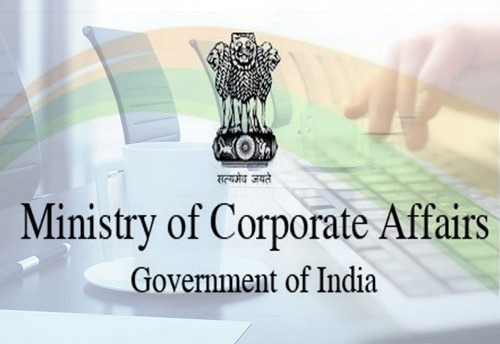H.K. Sema, J.@mdashThese two Civil Rules arises out of common questions of facts and law and as such they are being disposed of by this common judgment.
2. I have heard Mr. Tali Ao, learned Counsel for the Petitioner as well as Mr. Imzang Jamir, learned Sr. Govt. Advocate.
3. Petitioner in Civil Rule No. 65(K)95 was appointed as work charge Plumber for a period of three months on ad hoc basis with effect from the date he joins the duty. The appointment carries a stipulation that the appointment is purely temporary and can be terminated without assigning any reason at any time.
4. Petitioner in Civil Rule 68(K)95 was appointed as work, charge Store Keeper with effect from 1.4.90. The appointment also carries a stipulation that the appointment is purely temporary and can be terminated without assigning any reason or notice at any time.
5. Thereafter by Anr. order dated 27th January, 1992 the appointment of the Petitioner in Civil Rule 65(K)95 was extended beyond three months until further orders. Their services came to be terminated by impugned order dated 25th May, 1995 reads as under:
As their services is no more required the following Work Charge staffs under this division is hereby discontinued from the services w.e.f. 01.06.95.
6. Before (sic) advert further to the arguments advanced by learned Counsel for the Petitioner. I may at this stage refer to the decision of the Apex Court in
Srimati Pushpa Srivastava was first appointed on contract basis for a period of three months. It was specifically stated in the order of appointment that it was purely on ad hoc basis and liable for termination without any notice on either side. On 18 July, 1988 the appointment of the Respondent was extended for further period of three months on the same terms and conditions. On 29 January 1989, a fresh order was made appointing the Respondent as Trainee Executive on contract basis for a period of three months. The appointment also carries a stipulation that the appointment is purely on ad hoc basis and terminable without notice by either side. On 29 June, 1989 she was given appointment on a newly created post. It was also on ad hoc basis for a period of six months and it carries same terms and conditions. On 5th January, 1990 Anr. ad hoc appointment was made for a period of three months. Since the appointment of the Respondent was coming to an end she filed a writ petition inter alia praying for giving a regular or a permanent appointment to her. The High Court made the Rule absolute and directed to regularise her service within three months. Being aggrieved the Appellant filed a SLP before the Apex Court. The Apex Court after considering the various decision has pointed put in paragarph 20 as under:
Where the appointment is purely on ad hoc basis and is contractual and by efflux of time, the appointment comes to an end, the person holding such post can have no right to continue in the post. This is so even if the person is continued from time to lime on ''ad hoc'' basis for more than a year. He cannot claim regularisation in service on basis that he was appointed on ad hoc basis for more than a year.
7. Reverting to the facts of the case, it is contended by Mr. Tali that the Petitioners have continued in the posts for more than three years and as such they cannot be thrown out of the posts held by them in the manner sought to be done without assigning any reason whatsoever. In this connection Mr. Tali has referred to a decision of this Court. In Md. Abdul Awal v. The Deputy Commissioner Nagaon and Ors. (1991) 2 GLR 477 where this Court has held that reasons for decision to terminate the services must exist. This Ruling is of no assistance to the Petitioners case firstly, this Court was considering the termination of the Govt. servant who has been appointed on regular basis against a regular post. Secondly in the instant case there is no such thing as termination which require disclosing of reasons for termination of services. The impugned order quoted above would clearly show that the services of the Petitioner comes to an end of the basis of the terms and conditions of their appointment, because the Petitioner were a temporary appointee or ad hoc basis. Continuing in such services for three years would not accrue any right of regularisation of their services, specially when the appointment of the Petitioner were a work charge employee and not against any regular post. I say this because even in the appointment order there is no indication that the appointment has been made against any sanctioned post. Therefore, the requirement of the services of the Petitioner if any was only for a limited purpose for which their services were required.
8. This apart, counter on behalf of the Respondent No. 1 to 3 have been filed. It is averred in paragraph 2 of the counter as under:
Although the appointment orders were issued with the designations as Store Keeper and Plumber, there exist absolutely no store transaction nor plumbing works whatsoever. These items of works will be required when the Project is nearing completion or as soon as the Project is completed. As such (sic) is no job at all for these two staff as of now.
As stated earlier, as and when the services of the Store-Keeper and Plumber will be required in the near future, the Respondent Govt. will surely consider their case instead of making any other fresh recruitments.
Petitioners have not filed any re-joinder controverting the averment made in paragraph 2 of the counter. This shows that the Petitioners were appointed even as work charge against the post which was not in existence and which is yet to be born. In such a situation, the Petitioners would be paid from the public exchequer without rendering any services to the public. These are the few instances in my view is the (sic) of financial crunch being faced by this State.
9. Mr. Tali also refers to a decision of this Court rendered in Ksh. Dinesh Singh and four Ors. Petitioner v. Chairman Manipur Tribal Dev. Corporation and five Ors. Respondents (1995) 1 GLR 122. He has particularly referred to the observation of this Court in paragraph 15 of its judgment that State cannot take the plea of financial constraint and deprive the citizen of their constitutional right. This decision is also of no assistance to the Petitioner''s case, because services of the Petitioners in Dinesh Singh (Supra) were terminated after pulling in about thirteen years of service and the services of many of the Petitioners have been regularised as pointed out in paragraph 11 of the judgment. It was in that situation this Court has made observation in paragraph 15 of its judgment.
10. Mr. Tah also refers to the decision of the Apex Court in
11. As already stated the appointment of the Petitioners were purely on ad hoc basis and the appointment comes to an end by efflux of time and that too the Petitioners were holding the posts which are not in existence as averred in paragraph 2 of the counter filed by the Respondents. In such circumstances it was definitely within the competence of the Respondents to discontinue the services of the Petitioners in the interest of public. Otherwise when the Petitioners were holding the post which are not in existence and they are paid from the exchequer of the public they are holding the posts at the cost of public interest because they will not be able to render any service to the public when there is no job for them to perform. It is well settled principles of law that if a public interest is pitted against the private interest the former must prevail over the later. This is exactly happening in these petitions. Even otherwise, in view of the principles laid down by the Apex Court is Srimati Pushpa Srivastava (supra) they have no right to claim regularisation in service on the basis that they have been appointed on ad hoc basis for some years. The appointment of work charge staff on ad hoc basis is purely a temporary arrangement and it is not against the sanctioned post. Regularisation of services is normally against the sanctioned post. If there is no regular post in existence, the Petitioners cannot claim the regularisation against such post.
12. Next, it is contended by Mr. Tali that the impugned order is bad being passed in violation of the Rule of Natural Justice is as much as impugned order has been passed without any opportunity of showing cause, is also not tenable.
13. Rule of natural justice is not embodied rule. The rule is elastic and can not be put in a rigid form. The application of the Rule therefore, depends upon the facts and circumstances of each case. In order to sustain the complaint of violation of the Rule, person seeking for it must establish that prejudice has been caused to him for non observance of the Rule. In the instant case, admittedly Petitioners were appointed as work charged employee on ad hoc basis. Their services came to an end as it is no longer required. In such circumstance no prejudice has been caused to the Petitioners which require hearing before the impugned order was passed.
14. In the result there is no merit in these writ petitions and they are accordingly dismissed. Interim order if any stands vacated.
15. Before I part with the record, I shall constraint to observe that the Respondent made averments in paragraph 2 of the counter that as soon as the posts of Store Keeper and plumber is required in near future after the completion of the Project or when the project is nearing completion as the case may be, the cases of the Petitioners shall be considered for making appointment to such posts. I take it as an undertaking by the Respondent. Therefore, the Respondent shall not be allowed to lake Anr. stand as and when the posts of Store Keeper and Plumber will be required in near future under the establishment of the Respondent. I make it clear that as soon as the posts of Plumber and Store Keeper will be required and is made available to the department, the Respondent shall immediately intimate the Petitioners about the availability of the posts and on such intimation the Petitioners shall file application before the Respondent and the Respondent shall consider the application filed by the Petitioner and appoint them to the said posts considering the fact that they have put in the post for some year and have gained some experience. I further make it clear that in the event of such posts are being made available to the Respondent, and the Petitioners are not appointed, they are at liberty to approach this Court again with a certified copy of this judgment.
Subject to the aforesaid observations, these petitions are dismissed.
No costs.

